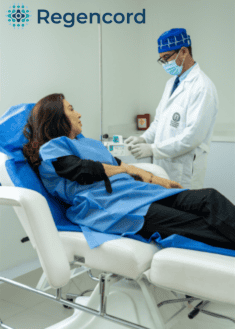
Your Guide to Affordable Blood Work Diagnostics Abroad
In today's fast-paced world, staying on top of your health is more important than ever. Often, the first step towards understanding your body's inner workings is through a simple yet powerful tool: blood work diagnostics. These essential medical tests go beyond what meets the eye, offering a detailed snapshot of your health, detecting potential issues early, and guiding your healthcare journey.
Imagine having a comprehensive health check-up, including thorough blood tests, in a state-of-the-art facility, often at a fraction of the cost you'd pay at home. This isn't just a dream – it's the reality offered by medical tourism. Patients worldwide are increasingly choosing to travel for high-quality, affordable diagnostic testing, making it an intelligent decision for proactive health management.
From routine check-ups to specialized diagnostic panels, medical tourism destinations provide access to advanced laboratories and skilled professionals. Whether you're seeking to monitor a chronic condition, get a baseline health assessment, or simply take control of your well-being, exploring blood work diagnostics abroad can be a practical and cost-effective solution. Let's delve into how this invaluable service, coupled with the advantages of medical travel, can empower you to make informed decisions about your health.
What Exactly Are Blood Work Diagnostics?
Blood work diagnostics, often referred to simply as blood tests or lab tests, are medical procedures that involve taking a small sample of blood from a vein, typically in your arm, and sending it to a laboratory for analysis. This sample is then examined for a wide array of indicators that can reveal a tremendous amount about your health.
Think of your blood as a complex river flowing through your body, carrying vital information about every organ and system. A blood test is like taking a "water sample" from that river to see what's in it. By measuring specific levels of cells, enzymes, hormones, electrolytes, and other substances, doctors can detect infections, identify anemia, check cholesterol levels, screen for diabetes, assess kidney and liver function, and even look for markers of certain cancers. It’s a fundamental tool in both preventive care and disease diagnosis.
Why Are Regular Blood Tests Essential for Your Health?
Regular blood tests are a cornerstone of preventive medicine. Many serious health conditions, like high cholesterol, diabetes, and certain liver or kidney diseases, can progress significantly without obvious symptoms in their early stages. Blood tests can catch these issues long before you feel unwell, giving you and your doctor a head start on treatment and lifestyle adjustments.
Beyond early detection, blood tests are indispensable for managing chronic conditions. If you have diabetes, for instance, regular blood glucose tests are crucial for keeping your sugar levels in check. For those on certain medications, blood tests monitor how the drug is affecting your body and help prevent adverse side effects. They empower you with knowledge, allowing you to partner with your healthcare provider to maintain optimal health and quality of life.
What are the Key Types of Blood Work Diagnostics Available?
Blood work diagnostics encompass a wide range of tests, each designed to provide specific information. Understanding the common types can help you discuss your health needs with your doctor:
- Complete Blood Count (CBC): This is one of the most common blood tests. It measures the number of red blood cells, white blood cells, and platelets. A CBC can detect anemia, infection, and other blood disorders, giving a broad overview of your general health.
- Basic Metabolic Panel (BMP) & Comprehensive Metabolic Panel (CMP): These tests measure glucose levels, electrolyte balance (sodium, potassium, chloride, bicarbonate), kidney function indicators (BUN and creatinine), and sometimes liver function (CMP). They are crucial for assessing overall metabolic health and organ function.
- Lipid Panel: This test measures cholesterol levels (total, LDL, HDL) and triglycerides. It's vital for assessing your risk of heart disease and stroke.
- Thyroid Panel: Measures thyroid-stimulating hormone (TSH) and sometimes T3 and T4 hormones, which regulate metabolism. This helps diagnose thyroid disorders like hypothyroidism or hyperthyroidism.
-
Enzyme Markers:
- Liver Function Tests (LFTs): Measure enzymes and proteins related to liver health, detecting inflammation or damage.
- Cardiac Enzyme Tests: Measure enzymes like troponin to check for heart muscle damage, often used in suspected heart attacks.
- Hormone Tests: Can measure various hormones, from sex hormones (estrogen, testosterone) to cortisol, to assess endocrine function, fertility, and stress levels.
- Diabetes Tests: Beyond glucose in the BMP, HbA1c (Hemoglobin A1c) measures average blood sugar levels over 2-3 months, providing a clearer picture of diabetes management.
- Inflammatory Markers: Tests like C-reactive protein (CRP) and erythrocyte sedimentation rate (ESR) can indicate inflammation in the body, often associated with infections or autoimmune diseases.
- Specific Disease Markers: Tests for specific conditions, such as PSA for prostate cancer screening, vitamin D levels, or infectious disease panels (e.g., Hepatitis, HIV).
Each type of blood test serves a unique diagnostic purpose, and your doctor will recommend the appropriate panel based on your age, symptoms, medical history, and risk factors.
How Should I Prepare for My Blood Test Appointment?
Proper preparation is key to ensuring accurate blood test results. While requirements can vary depending on the specific tests ordered, here are some general guidelines:
- Fasting: Many blood tests, especially those measuring glucose, cholesterol, or triglycerides, require fasting. This typically means not eating or drinking anything except water for 8 to 12 hours before the test. Ask your doctor or clinic if fasting is necessary for your specific tests.
- Hydration: Drink plenty of water before your test. Being well-hydrated makes your veins more prominent and can make the blood draw easier.
- Medications: Inform your doctor about all medications, vitamins, and supplements you are taking. In some cases, you may need to temporarily stop certain medications, but never do so without explicit medical advice.
- Avoid Alcohol and Strenuous Exercise: Alcohol can affect liver function tests and blood sugar, while intense physical activity can alter enzyme levels. It's best to avoid both for at least 24 hours before your test.
- Sleep: Get a good night's sleep before your appointment, as lack of sleep can sometimes impact hormone levels.
Always double-check with your diagnostic clinic or healthcare provider for specific instructions regarding your scheduled blood work, as individual tests may have unique preparation protocols.
Understanding Your Blood Test Results: A Simple Guide
Once your blood sample is analyzed, you'll receive a report detailing your results. This report usually lists various parameters (e.g., glucose, cholesterol, white blood cell count) alongside your measured value and a "normal reference range." The normal range represents the typical values found in healthy individuals. If your results fall outside this range, it might indicate a potential issue, but it doesn't automatically mean you have a disease.
Interpreting blood test results is complex and requires medical expertise. Many factors can influence results, including age, gender, diet, medications, and even the time of day the blood was drawn. For example, a slightly elevated white blood cell count could indicate a mild infection, while a significantly high count could point to something more serious. Your doctor will review your results in the context of your overall health, symptoms, and medical history to provide an accurate diagnosis and recommend appropriate next steps. Don't hesitate to ask questions and seek clarification from your healthcare provider.
When is Medical Tourism a Smart Choice for Blood Work Diagnostics?
Choosing medical tourism for blood work diagnostics makes sense for several reasons. Firstly, cost is a major factor. In many Western countries, routine and specialized blood tests can be prohibitively expensive, especially if you lack adequate insurance coverage or have high deductibles. Traveling to destinations renowned for medical tourism can offer significant savings without compromising on quality.
Secondly, access and efficiency play a role. Some specialized diagnostic tests might have long waiting lists in your home country. Medical tourism often provides quicker access to these services, allowing for faster diagnoses and treatment plans. Lastly, for individuals already planning international travel, incorporating a comprehensive health screening can be a highly efficient way to manage their health proactively, combining wellness with leisure.
What Benefits Does Medical Travel Offer for Diagnostic Testing?
The advantages of medical travel extend beyond just financial savings. When opting for diagnostic testing abroad, patients can benefit from:
- Significant Cost Savings: As mentioned, the primary driver for many. Procedures can be 30-70% cheaper than in countries like the US or UK.
- Access to State-of-the-Art Facilities: Many medical tourism hubs invest heavily in modern diagnostic equipment and laboratories, offering cutting-edge technology.
- Reduced Wait Times: Avoid the long queues common in some national healthcare systems, allowing for faster diagnosis and quicker progression to treatment if needed.
- High-Quality Care and Expertise: Clinics catering to international patients often boast highly trained staff, many educated in Western countries, and adhere to international quality standards.
- Privacy and Discretion: Some individuals prefer the anonymity and privacy that medical travel can offer for their health evaluations.
- Combine with a Vacation: For routine blood work or general check-ups, you can often enjoy a relaxing trip, making the health screening a less stressful experience.
These benefits collectively make medical tourism an increasingly attractive option for those seeking efficient and affordable diagnostic services.
Where Can I Find Affordable Blood Work Diagnostics Abroad?
Several countries have emerged as leading destinations for medical tourism, including diagnostic services. These regions often combine advanced medical infrastructure with lower operational costs, making them ideal for affordable blood work diagnostics:
- Mexico: Especially popular for patients from the US and Canada due to its proximity. Offers a wide range of diagnostic tests in modern facilities, particularly in border cities and major hubs like Mexico City and Guadalajara.
- India: Known for its highly skilled medical professionals, state-of-the-art hospitals, and significantly lower costs for all types of medical procedures, including comprehensive diagnostic panels.
- Thailand: A long-standing medical tourism destination offering excellent healthcare facilities, often with a focus on patient comfort and hospitality, along with competitive pricing for diagnostics.
- Turkey: Growing rapidly in the medical tourism sector, Turkey provides high-quality diagnostic services in modern clinics, often at a fraction of European or North American prices.
- Costa Rica: An attractive option for its beautiful environment and quality healthcare, offering various diagnostic tests, particularly for those combining treatment with a wellness retreat.
When considering these destinations, it's important to research specific clinics and their accreditations to ensure you're receiving care from reputable providers.
What is the Cost Comparison for Blood Work Diagnostics Worldwide?
The cost of blood work diagnostics can differ dramatically from one country to another. These variations are influenced by factors such as labor costs, government regulations, insurance systems, the cost of reagents and equipment, and the general economic landscape of the region. Here’s a comparative look at estimated costs for a common comprehensive blood panel (e.g., CBC, CMP, Lipid Panel, Thyroid Panel, HbA1c):
| Country | Estimated Cost Range (USD) for Comprehensive Panel | Notes |
|---|---|---|
| United States | $200 - $800+ (without insurance) | Highly variable by state and provider; insurance coverage significantly impacts out-of-pocket costs. |
| Canada | $150 - $500 (for uninsured/non-residents) | Covered by provincial health plans for residents, but private labs for non-residents can be costly. |
| United Kingdom | $100 - $400 (private clinics) | NHS covers most tests for residents; private options available but at a cost. |
| Mexico | $50 - $150 | Very competitive pricing, especially in popular tourist and border regions. |
| India | $40 - $120 | Extremely affordable with high-volume, modern diagnostic centers. |
| Thailand | $60 - $180 | Excellent balance of cost and quality, often in luxurious hospital settings. |
| Turkey | $50 - $160 | Emerging medical tourism hub with modern facilities and attractive pricing. |
These figures are estimates and can vary based on the specific lab, the comprehensiveness of the panel, and additional services. It's evident that patients can achieve significant cost savings by opting for blood work diagnostics through medical tourism.
Are International Blood Test Results Universally Accepted?
One common concern for medical tourists is whether their international blood test results will be accepted by their local doctor back home. The good news is that results from reputable, internationally accredited diagnostic labs are widely accepted. Laboratories that adhere to global standards, such as those accredited by the Joint Commission International (JCI) or the College of American Pathologists (CAP), produce results that are considered reliable and valid worldwide.
To ensure smooth acceptance, always request that your results be provided in English, with clear reference ranges specific to the lab that performed the analysis. It’s also helpful to have your doctor's contact information handy in case your overseas lab needs to communicate with them directly. Before you travel, you can even discuss your plans with your local physician to ensure they are comfortable with you getting diagnostic tests abroad and to confirm what information they will need.
How Can I Ensure Quality When Choosing an Overseas Diagnostic Clinic?
Choosing the right overseas diagnostic clinic is paramount to ensuring the quality and reliability of your blood work. Here’s how you can make an informed decision:
- Look for International Accreditations: Prioritize clinics accredited by reputable international bodies such as Joint Commission International (JCI), College of American Pathologists (CAP), or ISO certifications relevant to laboratory standards. These accreditations signify adherence to strict quality and safety protocols.
- Research Clinic Reputation and Reviews: Use platforms like PlacidWay to find clinics with strong positive patient reviews and testimonials. Look for consistent feedback regarding accuracy, professionalism, and patient care.
- Check Equipment and Technology: Ensure the clinic uses modern, well-maintained diagnostic equipment. Advanced technology contributes to more accurate and efficient testing.
- Verify Staff Qualifications: Inquire about the qualifications and experience of the lab technicians and pathologists. Many top international labs employ staff trained in Western countries.
- Understand Communication Protocols: Confirm that the clinic has English-speaking staff and a clear process for delivering results and explaining them.
- Transparency in Pricing: A reputable clinic will be transparent about all costs involved, with no hidden fees.
By diligently checking these factors, you can significantly increase your confidence in the quality of diagnostic services received abroad.
Are There Specific Eligibility Requirements or Risks for Blood Tests?
Blood tests are generally safe procedures with minimal eligibility restrictions and very low risks. Most people, regardless of age or existing health conditions, can undergo blood work. The primary eligibility is simply a medical need for diagnostic information, whether for a routine check-up, monitoring a condition, or diagnosing symptoms.
While blood tests are very safe, there are minor, uncommon risks, which include:
- Mild Pain or Discomfort: You might feel a brief sting or pinch when the needle is inserted.
- Bruising: A small bruise might form at the site of the blood draw, which typically fades within a few days. Applying pressure immediately after the draw can help prevent this.
- Lightheadedness or Fainting: Some individuals may feel dizzy or faint, especially if they have a fear of needles or haven't eaten. Inform the phlebotomist if you feel unwell.
- Infection: Extremely rare, but there's a minimal risk of infection at the puncture site if proper sterilization protocols are not followed. Reputable clinics use sterile, single-use equipment to eliminate this risk.
- Hematoma: A small collection of blood under the skin, which is usually harmless and resolves on its own.
It's always important to inform the healthcare professional drawing your blood if you have any bleeding disorders, are on blood thinners, or have any other medical conditions that might affect the procedure. These tests are overwhelmingly safe and provide invaluable health insights.
Take the Next Step with PlacidWay
Ready to take control of your health with advanced and affordable blood work diagnostics? Your journey to a clearer understanding of your well-being is just a click away. Explore top-rated international clinics, compare prices, and get a free, personalized quote for your comprehensive health screening with PlacidWay. Let us help you plan a seamless and informative medical travel experience. Start your proactive health transformation today!
Executive Treatment Abroad, Physical Exam Abroad




.png)
.png)



Share this listing